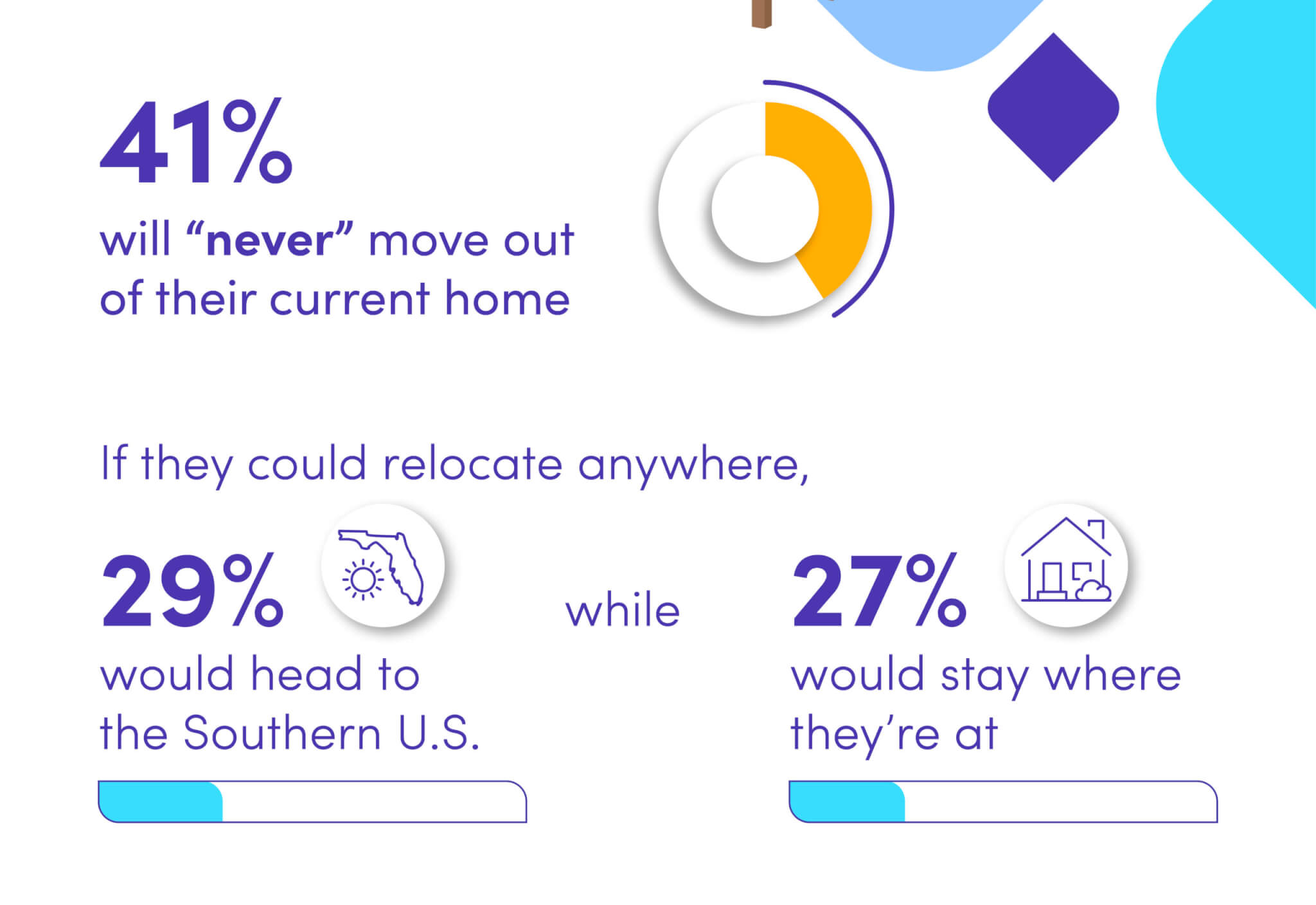NEW YORK — The idea that retirees immediately head to Florida after their last day of work is apparently a giant myth. In fact, many don’t even want to leave their current house! A new poll finds two in five seniors claim they’ll “never” move out of their home.
The survey of 2,000 Americans 65 and older reveals that 49 percent believe the notion that people should relocate upon retirement is “outdated.” Additionally, 41 percent have no plans to leave their current home in the near future.
Overall, 95 percent of respondents in this survey are either already retired or have plans to retire. From this group, only 29 percent say they’ve adjusted or intend to adjust their living arrangements since ending their careers.
One-third (33%) downsized their space, while others moved closer to family (28%), to a quieter area (28%), or to a warmer climate (25%). If given the opportunity to relocate, 29 percent would choose the Southern United States, while nearly the same number (27%) would prefer to remain where they are.
Conducted by OnePoll on behalf of ClearMatch Medicare, the results indicate that three in four seniors would prefer to live in their own homes, compared to 11 percent who would opt for an assisted living community and 10 percent who would choose to live with family.

The top reasons for staying in their home include being able to care for themselves (73%), liking their independence (72%) and liking their current residence (64%). Others enjoy being familiar with their neighborhood (46%), like their community (42%), and don’t want to leave family behind (24%). Beyond that, other seniors would miss their friends (25%), local businesses (16%), and even their doctor (15%).
“Today’s seniors are redefining retirement, and their strong desire to remain in their own homes reflects a shift in what we thought traditional retirement to mean,” says spokesperson Ben Pajak, CEO of ClearMatch Medicare, in a statement. “The survey results speak volumes about their determination to age in place, emphasizing the importance of independence, familiarity, and community connections.”
Once they retire, 59 percent of seniors prefer to pursue their passions and hobbies, but 15 percent express a desire to continue working. However, that doesn’t imply a lack of concern. Two in three seniors agree that changes experienced later in life are more challenging to adapt to than those encountered earlier.
Concerns about retirement specifically include not having enough income (47%), having too much free time (27%), or even needing to be reliant on others (22%). Over one in five (21%) worry about losing their independence, not socializing enough (19%), or being a burden on their family and friends (19%).
To combat those concerns, many seniors have retirement goals in place, including traveling (45%), visiting with family and friends (44%), exercising (39%), and even picking up a new hobby (31%).
“Many retirees are eager to embark on a new chapter filled with their passions and interests,” says Vice President of Sales and spokesperson Jennifer Girdler. “While there are concerns about the challenges that come with later life changes, it’s inspiring to see that seniors are proactively addressing these issues by setting retirement goals.”
Survey methodology:
This random double-opt-in survey of 2,000 Americans 65+ was commissioned by ClearMatch Medicare between October 5 and October 11, 2023. It was conducted by market research company OnePoll, whose team members are members of the Market Research Society and have corporate membership to the American Association for Public Opinion Research (AAPOR) and the European Society for Opinion and Marketing Research (ESOMAR).

